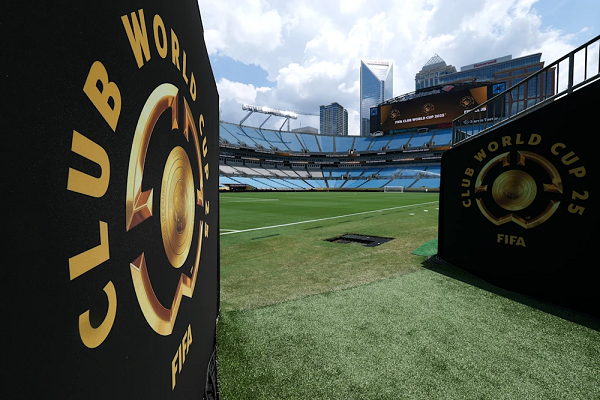Match delays due to lightning storms have drawn scrutiny at the competition in the US
“I think it’s a joke to be honest,” said Enzo Maresca. “It’s not football. It’s not for us.” The Chelsea manager was speaking of course after lightning interrupted his side’s round-of-16 clash against Benfica on Saturday.
Or more specifically, the non-negotiable thunderstorm safety protocols in several US states, designed to protect spectators and players from extreme weather. But while everyone knows safety is important, the delays have still sparked frustration among players, coaches and fans alike. See Maresca above.
So far, at least six matches have been halted mid-game due to lightning strikes detected within an eight-mile radius of a stadium.
Where have matches been suspended?
There have been two matches suspended in Orlando, Florida: one between Benfica and Auckland City, delayed for nearly two hours; the other between Ulsan HD and Mamelodi Sundowns, delayed for over an hour.
In Cincinnati the match between RB Salzburg and Pachuca was suspended for an hour and a half. There was also a 50-minute pause in East Rutherford, New Jersey when Palmeiras faced Al-Ahly, and in Nashville with Boca Juniors against Auckland City.
Saturday’s clash between Chelsea and Benfica in Charlotte, North Carolina was the highest-profile delay yet, and the second-longest.
Why are the matches being stopped?
According to state-level regulations, dangerous weather events like thunderstorms trigger an automatic suspension of play. Athletes and fans are warned to seek cover, and play cannot resume until after a 30-minute countdown without signs of lightning. The clock resets each time a new strike is detected.
The rule is commonplace in American sports, from college football to the NFL and MLS, but its clash with FIFA’s global tournament is causing serious concern.
What can FIFA do about the match delays?
Nothing, really. Unlike other footballing rules, this protocol is out of FIFA’s control. It is mandated by the state government and the only way to lift it – even temporarily – would be through government legislation, which is highly unlikely both now and ahead of the 2026 World Cup.
The broader question, which Maresca asked in his post-match interview, is why the tournament is being held in regions known for frequent electrical storms.
FIFA’s Chief of Global Football Development, Arsene Wenger, addressed the stoppages, saying: “It’s not ideal, I agree, because you want the flow of the game from the first to the last minute but, as well, when you organise a competition you need security first.”




